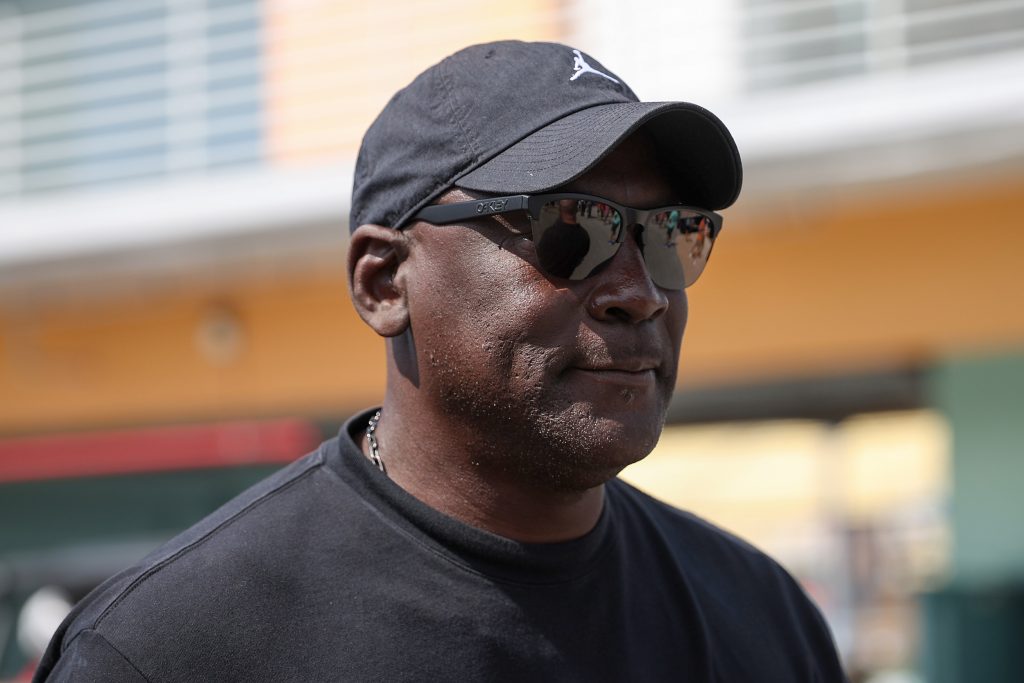The escalating legal battle between NASCAR and two of its prominent teams, Front Row Motorsports (FRM) and 23XI Racing, has cast a long shadow over the future of the sport. At the heart of the dispute lies the alleged withdrawal of NASCAR’s approval for FRM’s charter purchase from Stewart-Haas Racing, a move that both FRM and 23XI Racing claim is directly linked to their ongoing antitrust lawsuit against NASCAR. The teams allege that NASCAR is using the charter approval as leverage to coerce them into dropping their legal challenge, a claim that paints a picture of retaliatory tactics and raises serious questions about NASCAR’s governance practices. This contentious issue is currently being adjudicated in the U.S. District Court of Western North Carolina, with the outcome potentially reshaping the landscape of NASCAR and its relationship with its teams.
The core argument presented by FRM and 23XI Racing revolves around the assertion that NASCAR’s charter system and revenue-sharing agreements create an anti-competitive environment, hindering the financial viability of teams and unfairly favoring established organizations. The charter system, introduced in 2016, guarantees certain teams a spot in each NASCAR Cup Series race, creating a tiered system that arguably limits opportunities for smaller teams. Furthermore, the teams allege that the revenue-sharing model disproportionately benefits NASCAR and leaves teams struggling to secure adequate financial resources to compete effectively. Affidavits submitted to the court by FRM officials detail explicit claims that NASCAR conditioned the approval of the charter transfer on the withdrawal of the antitrust lawsuit, solidifying the teams’ accusations of retaliatory practices. This legal challenge strikes at the very foundation of NASCAR’s current operating structure and threatens to disrupt the established power dynamics within the sport.
The alleged retaliatory action by NASCAR, specifically the withdrawal of charter approval, carries significant implications for both FRM and 23XI Racing. The charter transfer represented a crucial step in FRM’s strategic plans, and its blockage has created considerable financial uncertainty and potentially irreparable harm. Similarly, 23XI Racing, co-owned by basketball legend Michael Jordan, sees the charter system and revenue-sharing model as obstacles to their ambitious growth plans, including their desire to expand to a three-car team. The teams argue that NASCAR’s actions are not only damaging to their individual organizations but also detrimental to the overall health and competitiveness of the sport. Their pursuit of this legal battle, therefore, represents a fight for a more equitable and sustainable future for all NASCAR teams.
NASCAR’s response to these allegations has been swift and resolute. The organization denies any wrongdoing and maintains that its actions are within its rights. NASCAR has accused the teams of attempting to manipulate the charter system for their own benefit and has defended its revenue-sharing model as fair and equitable. However, the teams counter that NASCAR’s claims of manipulation are baseless and serve only to deflect attention from the real issues at hand: the alleged anti-competitive practices that restrict competition and stifle the growth of smaller teams. This clash of narratives further underscores the deep divide between NASCAR and these two teams, with both sides entrenched in their respective positions.
Underlying this legal dispute is the broader context of ongoing negotiations for new revenue-sharing terms. The teams are pushing for a more equitable distribution of NASCAR’s revenue, arguing that the current model unfairly favors the organization at the expense of the teams that contribute to the sport’s success. They have proposed a significant increase in their share of media and new revenue, alongside greater governance power within NASCAR. NASCAR’s reluctance to accede to these demands has fueled the growing discontent among some teams, leading to the current legal standoff. The teams’ push for permanent charters, as opposed to the proposed seven-year renewals, reflects their desire for greater long-term stability and a more significant voice in the governance of the sport.
The unfolding legal battle between NASCAR, FRM, and 23XI Racing has far-reaching implications for the future of stock car racing. The outcome of this dispute could significantly alter the power dynamics within NASCAR, potentially leading to a more equitable distribution of revenue and a more competitive landscape for all teams. The teams’ challenge to the charter system and revenue-sharing model represents a significant push for reform and a desire for a more sustainable and competitive future for the sport. The court’s decision will undoubtedly shape the future trajectory of NASCAR and its relationship with its teams, with the potential to reshape the very fabric of stock car racing. Whether this leads to a more collaborative and mutually beneficial partnership between NASCAR and its teams or further entrenches the current divisions remains to be seen. The legal proceedings in the U.S. District Court of Western North Carolina will be closely watched by all stakeholders in the sport, as the outcome carries significant consequences for the future of NASCAR.










